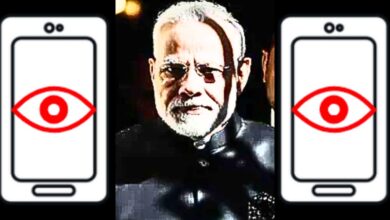Donald Trump: You Like Him, You Hate Him, But You Cannot Ignore Him!

In the great theatre of world politics, there are some who enter with such dominance that the ground actually does seem to tremble beneath their feet. They are not necessarily the darlings, the favorites among whom the people stand and cheer with genuine passion in their hearts. No, these are people who command attention with their strength, changing the script around them so that even their most vociferous critics end up saying what they wish. Donald Trump has established himself as exactly this kind of political leading man—loved deeply by some, detested passionately by others, but never overlooked.
Since the beginning of organized civilization, world politics has been a complex dance of alliances and power struggles, which is nothing but a never-ending game of chess in which the ultimate goal has never truly been popularity, but control. The pages of history are filled with the stories of empires that were built to power not by friendliness, but by their tight fist on trade routes, natural resources, and spheres of influence. When the great Roman Empire built its network of roads across Europe, the motivation was not a desire for warm unity.
Instead, those well-laid roads were highways for Roman control to travel unencumbered, facilitating rapid movement of armies and efficient taxing. Similarly, when the British Empire planted its flag on lands across the globe, it was not extending colonial niceness—it was taking valuable resources while also showcasing its firm hand across oceans and continents.

Even in the long run, the miserable psychological conflict of the Cold War and the polite gestures between Washington-Moscow were merely a thin covering over a series of deliberate plays, each aimed at weakening the other’s position on the global chessboard. Across these very different periods in history, the most effective leaders understood one simple fact—that world politics has never been about being popular, but a high-stakes game in which winning, not approval, is the real prize.
Looking at the political landscape today, it’s obvious that some things hadn’t changed much—they’ve simply taken on new forms. Most politicians still operate by the same old rules of diplomatic etiquette, but one individual decided to tear down the traditional barriers altogether, exposing the backstage behind the show—Donald J. Trump. There is something quite fascinating about Trump’s style of handling global affairs; he plays only for Team America with such intense energy that it feels almost like a show. Unlike previous leaders, who carefully crafted their global images to keep vital allies happy, Trump didn’t care much about being popular with other nations.
He wouldn’t adopt the traditional diplomatic niceties just to appease old-time friends. Instead, he treated governing like a high-stakes negotiation, according to one simple rule—America first. Surprisingly, this worked, giving real results, and political analysts all over the world were left confused! Traditional powers were suddenly shaken, financial markets oscillated between skepticism and optimism, and trade relationships that had been robust for years suddenly faced serious questioning. Trump transformed the notion of free trade from a standard practice into a tool employed specifically to advance American interests in a global market that he believed had too often taken advantage of America’s niceness.

Think about the recent use of reciprocal tariffs—this surprised policy experts who looked at their economic books in shock. India, for example, is looking with a huge 26% tariff on its exports to American markets. This action is not just about money; it is about changing the balance of power. Trump’s reasoning is very simple—if India has kept high tariffs against American products, why should the United States keep following more generous rules? The US Trade Department stated that India’s flexible and frequently changing tariff policy caused an ongoing sense of uncertainty for American exporters, and hence Trump didn’t simply see the disparity, rather he viewed it as a weakness and moved immediately to exploit it.
With the careful thinking of a business leader rather than a traditional politician, Trump decided that America’s past trade policies had been too nice—too focused on diplomacy instead of economic benefits. His administration then chose to stop the usual way of diplomatic giving in and moved towards being more forceful. The international community is still trying to understand this change, with countries either rushing to adjust to this new situation or complaining more loudly.
Their shared frustration mostly comes from the sudden uselessness of familiar diplomatic strategies; ways that no longer work against an opponent who simply ignored their importance. Trump did not just ignore the old rules; he dramatically tore them apart in front of a global audience.
As Shakespeare would have put it, the issue is not Trump himself, but the stars—or more precisely, with the global community that had grown accustomed to leaders who managed international relations as a courteous, if sometimes strained, cooperation. The world had expected diplomatic constraint, but instead received hard-hitting deal-making. Nations expected consistent strategy but received erratic approaches.

The key to effective leadership in this new international order is to demonstrate toughness and adaptability rather than maintaining high approval ratings. Trump, whether purposefully or unintentionally, forced the international community to learn how to deal with tougher diplomacy. Territories that adapted to this transformation were able to traverse these difficult times successfully. Those who continued to use old diplomatic approaches found themselves consigned to the new hierarchy.
Trump’s aggressive “America First” message may come across very crude to individuals accustomed to tactful diplomatic speeches, but it imparts a hard lesson on the way the world actually works in politics that many members of the international community were late in accepting—no nation deserves privileged trade benefits solely due to history or diplomatic tact. If an economy is not strong enough to cope with a more direct manner of treatment by other nations, the fault lies with its own policies, not the courtesy of its trading partners.
Proper international leadership in today’s times does not come from clinging to outdated deals but from rapidly adapting to new realities and being capable of performing well despite adversity. International politics without its diplomatic face displays that it is less concerned with maintaining amiable facades and more with deriving actual advantages for one’s nation. Trump displayed this notion in very evident terms, without the need to apologize for discomfort that it raised among international observers.
The Trump foreign policy style is akin to great leaders of the past who shook the traditional order. Otto von Bismarck, the Iron Chancellor who united Germany in the 19th century, is quoted as saying that “Politics is the art of the possible, the attainable—the art of the next best.”
- Similar to Trump, Bismarck placed national interests ahead of global approval, astonishing individuals with his pragmatic style of power politics.
- In the same route, Charles de Gaulle’s assertion of French sovereignty and skepticism regarding international institutions constantly disrupted allies but ultimately made France stronger in post-war Europe.
These historical precedents show that Trump’s disruptive style, however astonishing to contemporary thinking, is a part of a long line of leaders who placed their nation’s interests ahead of global endorsement.
Other global leaders have started using elements of Trump’s mode of working in recent years. Boris Johnson’s approach to negotiating Brexit, Indian Prime Minister Narendra Modi’s more assertive foreign policy, and even some of Chinese President Xi Jinping’s “Wolf Warrior” diplomacy share a similar inclination to put national interests first, rather than following global norms. Like performers who watch an individual who breaks the conventional stage rules but still gets applause, these leaders have found that the conventional diplomacy rules might be more malleable than they thought.
The question that keeps political scientists and international relations experts awake at night is not whether Trump’s approach was good or bad—such black-and-white judgments miss the complexity of international relations. Instead, the deeper question asks whether his changes to accepted norms are a temporary glitch in diplomatic history or the start of a fundamental change in how countries treat each other. As Winston Churchill once eloquently phrased it, “However beautiful the strategy, you should occasionally look at the results.”
By this standard, Trump’s legacy is all the more complicated—economic indicators during his time in office (before the pandemic) showed strong performance, trade deals were renegotiated in fact, and America’s position in some of the most important areas was probably enhanced.
But at the same time, traditional alliances were undermined, international cooperation on important issues like climate change stalled, and America’s soft power—its ability to get what it wants without resorting to force—dropped sharply. Trump’s greatest contribution to global politics was not a policy but his unwitting testing of the post-World War II global system. An engineer, eager to discover vulnerabilities, Trump’s unconventional style revealed vulnerabilities in international agreements and institutions long concealed by diplomatic discretion.
NATO allies were forced to confront issues of defense spending long evaded with discretion. The World Trade Organization was challenged on its legitimacy and utility never before. Even the concept of multilateralism—the notion that global problems require cooperative solutions—was challenged by the head of the very nation that had promoted it since 1945.
Looking back on the Trump years of American foreign policy, we can see that he is symptom, not cause—a reflection of deeper trends in American society and international politics alike. His ascent coincided with (and may have accelerated) a global shift toward nationalist politics, economic protectionism, and skepticism of globalist institutions. Whether people see these trends as good or bad probably depends more on what they think than on any objective evaluation. What is certain, however, is that Trump reset the terms of the debate about America’s role in the world, challenging assumptions that had been largely unexamined for many years.
Mark Twain has famously remarked that “history doesn’t repeat itself, but it often rhymes.” Trump’s presidency was all about making deals and doing what is in the best interests of America, and it takes us back to the days when the great powers were more interested in being ahead of the pack than in the long run. Whether this is merely a fleeting deviation from the post-Cold War era or the beginning of a new age in global relations remains to be seen. What is certain is that future American presidents and world leaders will have to cope with a world situation where the established rules have been seriously tried.
Donald Trump is either loved or hated, and few remain neutral about him. His existence in the world cannot be denied. Like a stone cast into a tranquil pond, his presidency made waves that still change distant places.
In a more complex and interconnected world, Trump reminded us of an unpleasant truth—that under grandiose rhetoric about diplomacy and cooperation, the competition for resources, markets, and influence goes on unabated. Historians will argue for many years to come whether this memory makes global stability stronger or weaker. Meanwhile, as Machiavelli would say if he were standing before us today, to be feared more than loved has its benefits—chiefly that you are never ignored.




